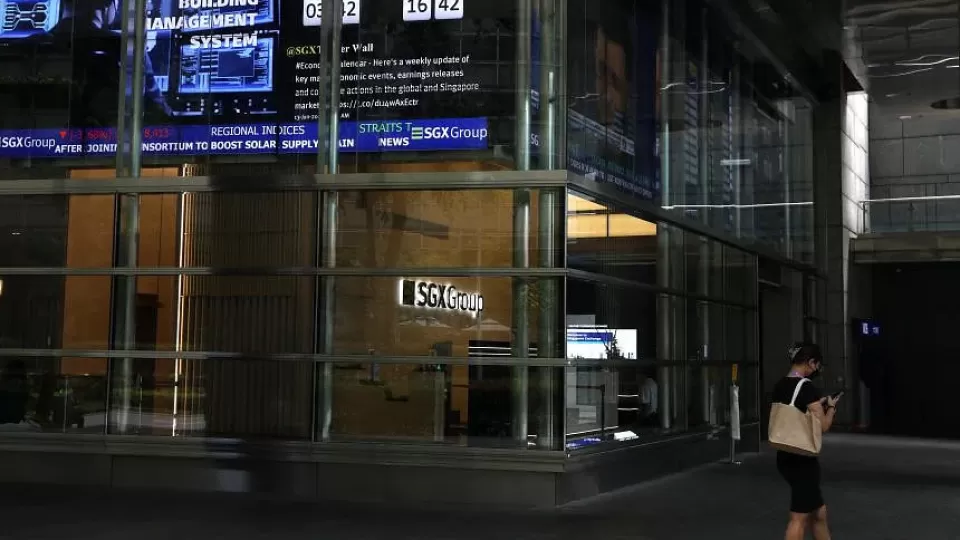February 21, 2023
SINGAPORE – Despite technology firms here delivering better earnings and dividend payouts in recent months, many tech stocks listed on the Singapore Exchange (SGX) are still floundering after trading poorly as interest rates rose in the past year.
Aztech Global, which makes devices for the Internet of Things (IoT), is one example.
The company last Friday reported growth in revenue to a record $820.2 million for the financial year ended Dec 31, 2022. This is up 31.4 per cent compared with the year before due to higher IoT product sales.
Aztech recorded net profit of $67 million for FY2022, a 9.7 per cent drop. But this would have been $123.8 million had it not been for the foreign exchange losses booked.
The company held net cash amounting to $210.9 million, and its board is recommending a dividend of 1.5 cents. That will bring total dividends paid to 4.5 cents a share, representing a payout of 51.4 per cent, more than half of Aztech’s attributable profit for the year.
Chief executive Michael Mun said the FY2022 revenue is a record for the firm, but warned that higher interest rates to contain inflation would soften electronics demand in major markets in 2023.
Aztech’s shares closed at 80 cents, down by more than 4 per cent on Monday and almost 15 per cent in the past year.
Shares of firms that service the global semiconductor industry have also stumbled despite stronger demand.
SGX-listed AEM Holdings, which provides semiconductor and electronics test solutions, has fallen around 22 per cent over the past year. Its shares closed at $3.31 each on Monday.
This is despite it expecting record revenues of between $820 million and $850 million, backed by strong customer demand. AEM will report FY2022 results on Friday.
AEM in November 2022 announced revenue totalling $746.6 million for the nine months ended Sept 30, claiming that this was the highest nine-month amount generated in its history. Net profit for the period was $115.3 million.
UMS Holdings, which makes equipment for semiconductor companies, also announced record revenues for the nine months to Sept 30. Backed by strong customer demand, its revenue for the period hit $250 million, exceeding sales for the whole of FY2021, while net profit hit a record of $82 million, the company said.
Still, UMS shares closed on Monday at $1.16 each, down by 5.7 per cent over the past year.
Shares of Micro-Mechanics, which makes precision tools used to assemble and test semiconductors mainly for customers in China, fell by over 30 per cent in the same period.
The volatility seen in the share prices of many Singapore tech companies comes amid a global slump in tech stocks, led by rising interest rates, high inflation and lower consumer confidence. Besides Aztech, AEM, UMS and Micro-Mechanics, other tech firms like software provider Silverlake Axis and Nanofilm Technologies have also suffered.
But prospects for the industry are improving.
Consultancy McKinsey predicts that the industry will surpass US$1 trillion (S$1.3 trillion) in value by 2030, led by growth in vehicles and data centres.
Mr Robert Casanova, director of industry statistics and economic policy at the US Semiconductor Industry Association, said the long-term prospects for the chip industry are “incredibly bright”.
“Chips are key to the big emerging technologies, such as artificial intelligence (AI), IoT and 6G. They are essential to breakthroughs in medicine and innovation in medical devices,” he said.
While OCBC Securities trading strategist Samuel Wong noted that Singapore is deepening the use of AI technologies in areas such as telehealth, smart living and manufacturing, he warned that the high interest rates that impacted tech stock valuations in 2022 will likely persist in 2023.
Hence, “apart from examining the fundamental valuation of companies, investors should look out for new innovations that these organisations are rolling out and the future value that they may bring forth”.
But Mr Nirgunan Tiruchelvam, head of consumer and Internet at IT research and consulting firm Aletheia Capital, said: “Tech firms here have done well operationally despite a global recession. Those that are in the business of tech hardware are linked to the global business cycle, and sentiment is improving as expectations of further interest rate hikes taper.”
Despite this, the share prices of Singapore-listed tech firms could continue to perform poorly due to the low liquidity and trading volumes on the SGX, which is dominated by banks and real estate plays, he said. Hence, investors here may not award local tech stocks the valuations they deserve.

